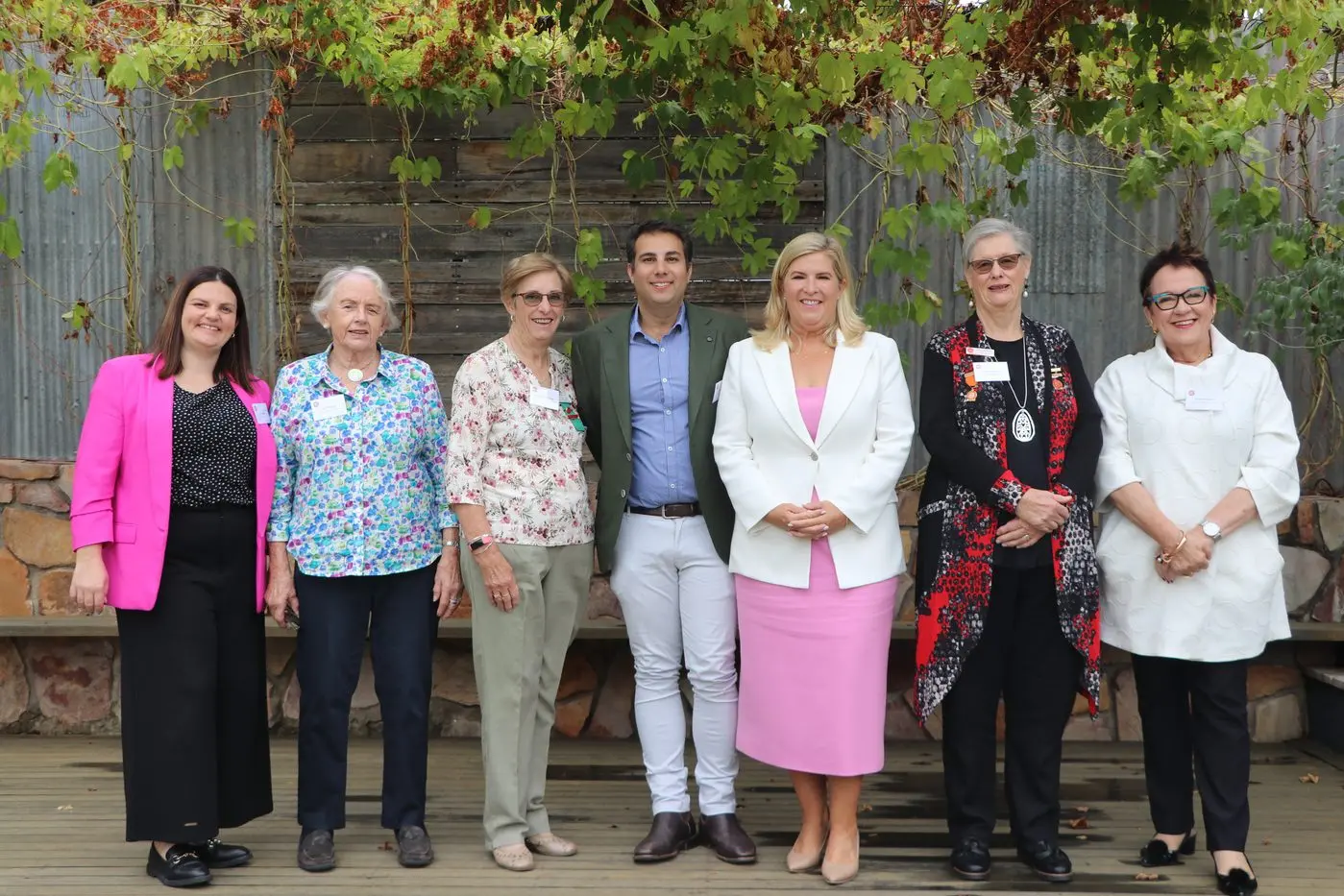PHOTO
THE Cooma Hospital Auxiliary hosted the United Hospital Auxiliaries of NSW (UHA) for a regional forum at the Alpine Hotel on Wednesday with nine different branches in attendance.
A number of items were discussed in regards to operation of auxiliaries before key speaker Margaret Bennett, CEO Southern NSW Local Health District took the stage.
Ms Bennett started by welcoming the executives and presidents from each of the nine branches as well as Snowy Monaro Regional Council Mayor Chris Hanna, Sarah Norris Snowy Hydro's Manager Communications, Marketing and Engagement, and Shadow Minister for Regional Health Bronnie Taylor.
"Thank you for UHA's direct support of patient care," Ms Bennett said.
"The list of equipment purchased is quite long, and the work that auxiliaries do is really important because the support helps us with items we would not be able to find funding for otherwise."
"The health system is a lot like an old home, there will always be more things that need doing or you would like to do and there is never enough money to do it all."
"It is about the equipment, but it's actually about a lot more than that, the fact that you've been around for 90 years speaks volumes about the strength between community and the health care system."
"Auxiliary members are the heart and soul of the community and the health care service they support, so it's important for executives in the health care service to share the successes and challenges of the service with auxiliary members so they can go out in the community and communicate the message."
Shadow Minister for Regional Health Bronnie Taylor took the stage saying she is proud of the state's health service. Mrs Taylor told the forum she was registered nurse before entering state politics, but stills sees herself as a nurse
"A few years ago I was the first ever Regional Health Minister in NSW, and it was the greatest privilege of my life," Mrs Taylor said.
"When I was a nurse at Cooma Hospital I used to think about how I could change things, how I could make things run better.
"We feel a real ownership in the country over our hospitals and health services, we feel involved in them , we care about them, we want them to be better places, and we want that connection with them.
"This is no doubt why the auxiliary members volunteer so much of their time."
Ms Taylor said she is a big supporter of data based evidence that suggests specialist treatments despite not being local eventuate in better long term patient outcomes.
"We want as much of our services to be as local as possible, but data has shown that a specialist performing surgeries they do many times a year as compared to a specialist that might only see two occurrences of the issue per year, provide better outcomes," Ms Taylor said.
"This is because the expertise is there, after that it's about getting people home as soon as possible or bringing them home to do their recovery."
"A story that's shared all across NSW is the bladder scanner that changed the lives of women in the Snowy Mountains."
"The specialist at the time knew that if she was able to catch stress incontinence in the early stages that she would be able to treat it in her patients."
"The funding wasn't there but I said let's ask the Auxiliary, and so I did, the Auxiliary bought her a bladder scanner."
"This would not have happened if it weren't for the Auxiliary."





